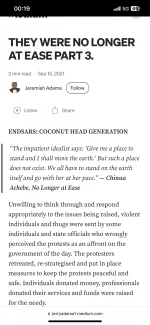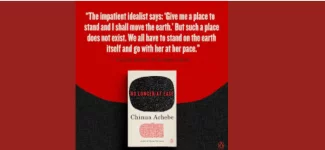Mwalimu-G
Elder Lister
Renowned Kenyan writer Ngugi wa Thiong'o is dead
His family confirms his death saying, he “lived a full life, fought a good fight.”
by Tabnacha Odeny News 28 May 2025 - 22:10
In Summary
“As was his last wish, let's celebrate his life and his work. Rîa ratha na rîa thŭa. Tŭrî aira!”—a Gikuyu phrase loosely translating to “With joy and sorrow. We are proud.”Plans for memorial services and public tributes are expected to be announced by the family in the coming days.
Renowned Kenyan writer Ngugi wa Thiong'o./COURTERSY
Renowned Kenyan author, scholar, and activist Ngũgĩ wa Thiong'o has died.
His family announced his passing Wednesday evening, 28th May 2025, saying he “lived a full life, fought a good fight.”
ADVERTISING
“It is with a heavy heart that we announce the passing of our dad, Ngũgĩ wa Thiong'o,” her daughter Wanjiku wa Ngugi said in a Facebook post on Wednesday night.
“As was his last wish, let's celebrate his life and his work. Rîa ratha na rîa thŭa. Tŭrî aira!”—a Gikuyu phrase loosely translating to “With joy and sorrow. We are proud.”
Plans for memorial services and public tributes are expected to be announced by the family in the coming days.
"The family's spokesperson, Nducu Wa Ngugi, will announce details of his celebration of life soon," Wanjiku said.
Ngũgĩ was 87.
A towering figure in African literature, Ngũgĩ’s influence stretched across continents, languages, and generations.
Known for novels such as A Grain of Wheat, Petals of Blood, and Devil on the Cross, Ngũgĩ championed the use of African languages in literature and resisted colonial and neocolonial systems of oppression throughout his life.
Born in 1937 in Kamiriithu, Limuru, Ngũgĩ’s work was deeply intertwined with Kenya’s struggle for independence and postcolonial identity.
In 1977, his radical play Ngaahika Ndeenda (I Will Marry When I Want), performed entirely in Gikuyu, led to his detention without trial by the Moi regime.
It marked a turning point in his career—he later abandoned writing in English altogether, opting instead to write in Gikuyu and translate into other languages.
Ngũgĩ spent decades in exile, lecturing at major universities abroad, including Yale and the University of California, Irvine.
Despite the distance, he remained tethered to Kenya through his language, activism, and unflinching critique of injustice.
Tributes have already begun pouring in from around the world. Writers, scholars, and readers are remembering him not only for his literary genius but for his unwavering commitment to truth and justice.
Tributes
Homa Bay Governor Glady Wanga: "Sad to learn of the passing on of a literary giant whose words shaped African thought and inspired generations. Prof. Ngũgĩ wa Thiong'o's works challenged oppression and celebrated the power of indigenous voices with courage, globally advocating for African languages. Though he has left us, his legacy lives on in every story, every struggle, and every dream of a just world. Rest in power, Prof. Ngũgĩ. Heartfelt condolences."
Kong'amano la Mapinduzi: "Thiong'o words, he gave voice to the oppressed. Through his courage, he challenged systems. He taught us the power of language, memory and resistance. His stories live on in books, classrooms and in the hearts of generations. Rest in Power comrade!wa NgugiThrough Prof."
Dr Ezekiel Mutua: "Thiong'o became a towering figure and a celebrated thinker. My deepest condolences go out to his family and friends around the world. May his soul rest in eternal peace. Ngugi A literary legend and one of Africa’s greatest voices has passed away. Through masterpieces like Petals of Blood and Ngahika Ndenda, written in both Kikuyu and English."
Ngũgĩ wa Thiong'o is survived by his children and grandchildren, many of whom have followed in his footsteps as writers, academics, and activists.
As the world mourns, it also celebrates. As he wished, his life and legacy will not be marked by silence, but by song, stories, and the enduring power of words.
His family confirms his death saying, he “lived a full life, fought a good fight.”
by Tabnacha Odeny News 28 May 2025 - 22:10
In Summary
“As was his last wish, let's celebrate his life and his work. Rîa ratha na rîa thŭa. Tŭrî aira!”—a Gikuyu phrase loosely translating to “With joy and sorrow. We are proud.”Plans for memorial services and public tributes are expected to be announced by the family in the coming days.
Renowned Kenyan writer Ngugi wa Thiong'o./COURTERSY
Renowned Kenyan author, scholar, and activist Ngũgĩ wa Thiong'o has died.
His family announced his passing Wednesday evening, 28th May 2025, saying he “lived a full life, fought a good fight.”
ADVERTISING
“It is with a heavy heart that we announce the passing of our dad, Ngũgĩ wa Thiong'o,” her daughter Wanjiku wa Ngugi said in a Facebook post on Wednesday night.
“As was his last wish, let's celebrate his life and his work. Rîa ratha na rîa thŭa. Tŭrî aira!”—a Gikuyu phrase loosely translating to “With joy and sorrow. We are proud.”
Plans for memorial services and public tributes are expected to be announced by the family in the coming days.
"The family's spokesperson, Nducu Wa Ngugi, will announce details of his celebration of life soon," Wanjiku said.
Ngũgĩ was 87.
A towering figure in African literature, Ngũgĩ’s influence stretched across continents, languages, and generations.
Known for novels such as A Grain of Wheat, Petals of Blood, and Devil on the Cross, Ngũgĩ championed the use of African languages in literature and resisted colonial and neocolonial systems of oppression throughout his life.
Born in 1937 in Kamiriithu, Limuru, Ngũgĩ’s work was deeply intertwined with Kenya’s struggle for independence and postcolonial identity.
In 1977, his radical play Ngaahika Ndeenda (I Will Marry When I Want), performed entirely in Gikuyu, led to his detention without trial by the Moi regime.
It marked a turning point in his career—he later abandoned writing in English altogether, opting instead to write in Gikuyu and translate into other languages.
Ngũgĩ spent decades in exile, lecturing at major universities abroad, including Yale and the University of California, Irvine.
Despite the distance, he remained tethered to Kenya through his language, activism, and unflinching critique of injustice.
Tributes have already begun pouring in from around the world. Writers, scholars, and readers are remembering him not only for his literary genius but for his unwavering commitment to truth and justice.
Tributes
Homa Bay Governor Glady Wanga: "Sad to learn of the passing on of a literary giant whose words shaped African thought and inspired generations. Prof. Ngũgĩ wa Thiong'o's works challenged oppression and celebrated the power of indigenous voices with courage, globally advocating for African languages. Though he has left us, his legacy lives on in every story, every struggle, and every dream of a just world. Rest in power, Prof. Ngũgĩ. Heartfelt condolences."
Kong'amano la Mapinduzi: "Thiong'o words, he gave voice to the oppressed. Through his courage, he challenged systems. He taught us the power of language, memory and resistance. His stories live on in books, classrooms and in the hearts of generations. Rest in Power comrade!wa NgugiThrough Prof."
Dr Ezekiel Mutua: "Thiong'o became a towering figure and a celebrated thinker. My deepest condolences go out to his family and friends around the world. May his soul rest in eternal peace. Ngugi A literary legend and one of Africa’s greatest voices has passed away. Through masterpieces like Petals of Blood and Ngahika Ndenda, written in both Kikuyu and English."
Ngũgĩ wa Thiong'o is survived by his children and grandchildren, many of whom have followed in his footsteps as writers, academics, and activists.
As the world mourns, it also celebrates. As he wished, his life and legacy will not be marked by silence, but by song, stories, and the enduring power of words.


